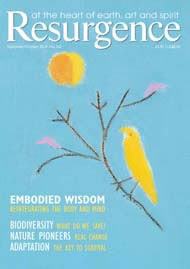The Canadian boreal forest is North America’s largest primary forest, containing massive amounts of fresh water, threatened wildlife and migratory birds, and 25% of the world’s remaining intact ancient forest. It is also the largest terrestrial storehouse of carbon on the planet, sequestering the equivalent of 27 years’ worth of global greenhouse-gas emissions.
Now, 21 member companies of the Forest Products Association of Canada (FPAC), and nine leading environmental organisations including Greenpeace Canada, Canopy and ForestEthics have signed an unprecedented agreement – The Canadian Boreal Forest Agreement – which applies to 72 million hectares of public forests that have been licensed to FPAC members. The agreement, when fully implemented, will conserve significant areas of the boreal forest, protect threatened woodland caribou and provide a competitive market edge for participating companies as they rebrand their products as ‘sustainable’.
Under the agreement FPAC members, who manage two-thirds of all certified forest land in Canada, commit to the highest environmental standards of forest management, whilst conservation groups commit to supporting FPAC member efforts by suspending their ‘Do Not Buy’ campaigns on forest products from this region. The agreement calls for the suspension of new logging on nearly 29 million hectares of boreal forest to develop conservation plans for endangered caribou, while maintaining timber supplies for uninterrupted mill operations.
“The importance of this agreement cannot be overstated,” said Avrim Lazar, President and CEO of FPAC. “FPAC member companies and their environmental NGO counterparts have turned the old paradigm on its head. Together we have identified a more intelligent, productive way to manage economic and environmental challenges that will reassure global buyers of our products’ sustainability.”
Environmental groups who are party to the agreement say the coming together of two traditional adversaries reflects a new commitment to a common goal. ”This is our best chance to save woodland caribou, permanently protect vast areas of the boreal forest and put in place sustainable forestry practices,” said Richard Brooks, spokesperson for participating environmental organisations, and Forests Campaign Coordinator of Greenpeace Canada. “Concerns from the public and the marketplace about wilderness conservation and species loss have been critical drivers in arriving at this agreement.”
However, not all environmental organisations are quite so optimistic and there are concerns that it actually legitimises continued old-growth forest logging in exchange for the temporary suspension for three years of any new logging in 29 million hectares of forest to plan for the possible protection of woodland caribou. More troubling still, the agreement provides legitimacy to the timber and pulp industry to log much, if not all, of the remaining 43 million hectares of Canada’s old-growth boreal forests.
Critics also condemn Greenpeace Canada’s endorsement of continued ancient boreal forest logging, largely to make throwaway paper items, suggesting that Greenpeace has failed to understand that all primary and old-growth forests are endangered and of high conservation value. Instead they claim Greenpeace perpetuates the ecological myth that old forests can be industrially logged in an environmentally acceptable manner.
In fact the solution to the conservation of old-growth forests is not to log them at all and to reduce the demand for consumable timber products by increasing the use of recycled materials and sourcing new fibre from regenerating secondary forests, mixed species plantations and sustainable alternatives such as hemp and bamboo.







